The Rewards of Mentoring Military Survivors
Authors: Amber Loveless , Noah Velazquez , Kristin Cook
In honor of National Mentoring Month, several of our mentors, TAPS Military Mentor Amber Loveless, TAPS Peer Mentor Noah Velazquez, and TAPS Peer Mentor Kristin Cook, have shared their mentoring story. To learn more about mentoring opportunities at TAPS, please refer to Peer Mentors and Military Mentors and Legacy Mentors pages.
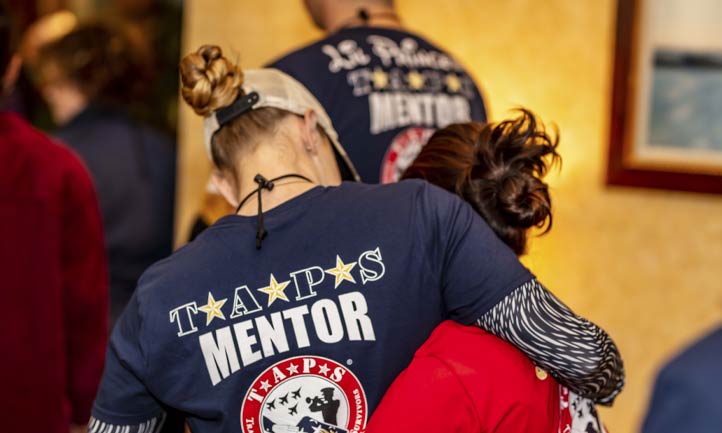
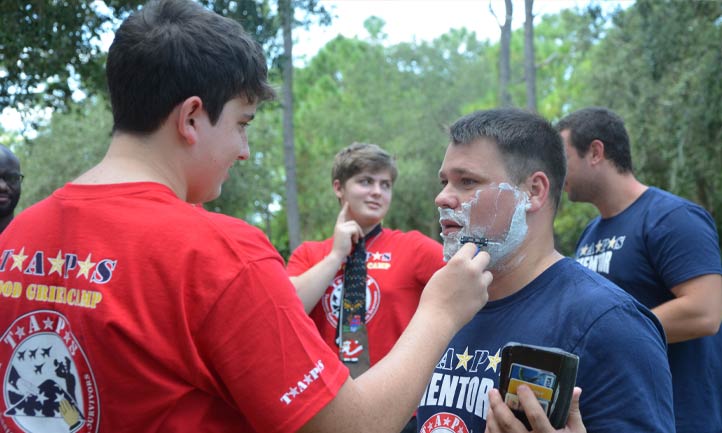
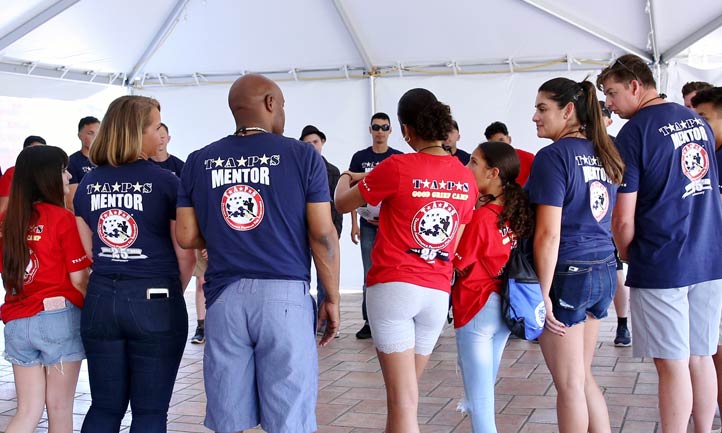
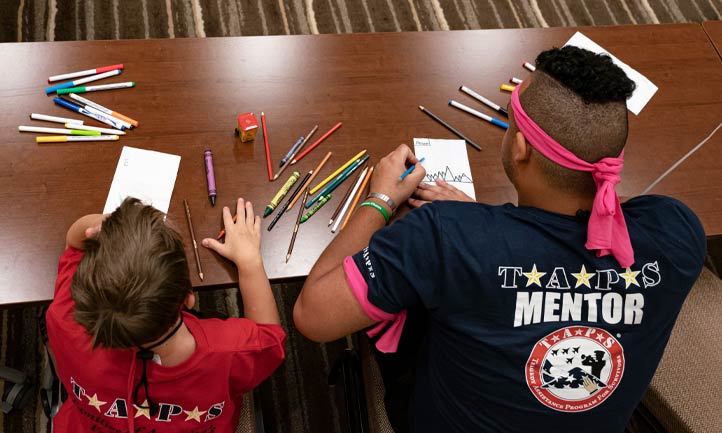
Amber Loveless retired from the United States Marine Corps in September 2020, a short time after the loss of her dear friend - United States Navy PO1 Bryan Scott Goodman who died on July 29, 2020.
When I was stationed at Camp Smith on Oahu, Hawaii, I first learned of TAPS when I received an email that TAPS was seeking military mentors for a TAPS Regional Survivor Seminar and Good Grief Camp that had originally been scheduled for Schofield Barracks, but was moved to Marine Corps Base Hawaii Kaneohe Bay following the January 14, 2016, crash of two CH-53E helicopters off the North Shore.
At that time, I had been in the military for over a decade and had never heard of TAPS, and that upset me. I had been a volunteer in every community I was stationed at, mainly with youth organizations, sports, and schools. But, right here in the military community was an organization serving the families of those who served and sacrificed on behalf of our country, and I had never known about it. When we moved back to CONUS, I told my husband that TAPS was where I wanted to channel my passion for volunteering. I was done pouring my time into places that didn’t fulfill my heart and purpose.
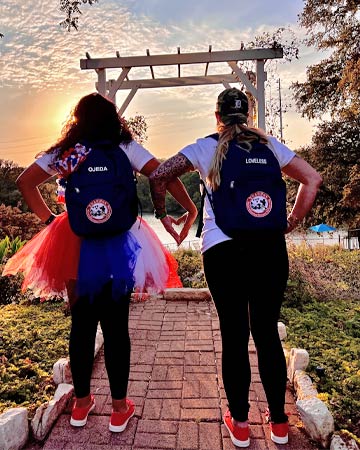
As a service member that became a parent early on in my career, deployed away from my children, and watched them grow up in the military community, I felt that mentoring was the least I could do for other military children, particularly surviving children. After all, I would be grateful for someone to be there for my children, if they ever needed it.
It would be quite challenging to name just one thing or person that has helped make me a better mentor, But, I would have to say that Jazmin Ojeda, undoubtedly, has helped me to grow as a mentor by sharing her story, and thus giving me a deeper understanding of a "survivor" experience, along with tools and ideas for Good Grief Camp programming that have had a positive influence on TAPS youth. The fortitude and vulnerability that Jazmin models for the teens and tweens in our Good Grief Camp has changed my life, giving me the courage to share my grief story, and thus allowing me to also role model that vulnerability with surviving children as a military mentor.
I have many incredible memories from my time as a TAPS Military Mentor, including one special memory from the Western Regional Survivor Seminar and Good Grief Camp in the summer of 2019. A young mentee was shy, ridden with anxiety and had no interest in leaving her mom. It took about ten minutes for her to calm down and slowly leave her mom's lap. Once she trusted me enough to let her mom go, she stayed by my side the entire weekend — essentially picking me as a mentor. She captured my whole heart.
To those service members and veterans considering becoming a TAPS Military Mentor, if you’re nervous, that's okay. We have all been there. I still get nervous before every Good Grief Camp — a different nervous now, but nervous nonetheless. If you cannot commit to more than one Good Grief Camp, that's okay too. That's still one weekend that will make a huge difference in a surviving child’s life. At some point you’ll probably walk away from a TAPS Good Grief Camp thinking, “Woah! I think I gained more from this than my mentee(s) gained from me.” If you have considered becoming a TAPS Military Mentor, join us for a weekend at a Good Grief Camp and let the “TAPS Magic” change your life for a weekend or a lifetime.
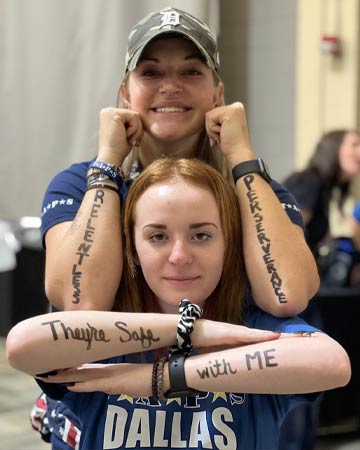
There are countless times I have had mentors support me in ways that I would have longed for since the passing of my Dad in 2005, and I treasure each of those individuals for taking on a role and responsibility that was not their own.
I have often stated that being with TAPS, my mentees, fellow mentors and friends is a supplemental form of grief therapy. I attribute that to the “feeling of belonging” with the survivors and service members. I witness the resilience and perseverance in the young mentees, and I am empowered to know that I am capable of that type of growth in my own grief journey. I am reminded to quit avoiding allowing myself to grieve the loss of my loved ones, friends and fellow service members. The surviving kids and teens with TAPS, and my fellow military mentors, help create a safe, supportive and welcoming environment where we can all share vulnerabilities with genuine acceptance. I am honored to be a small part of the life of these young survivors, and they will always have my admiration and hold a special place in my heart.
« Back
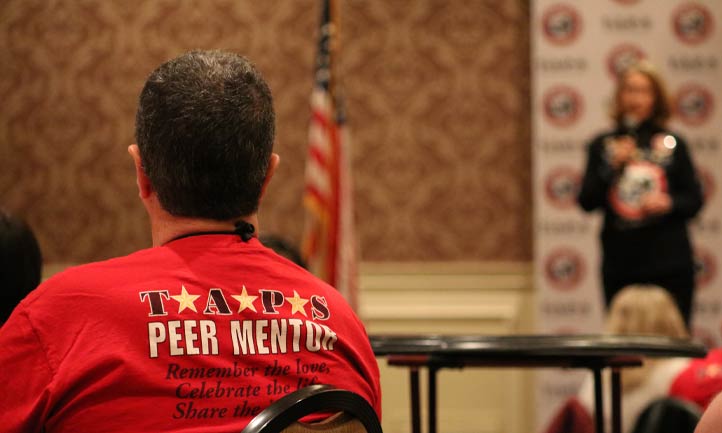
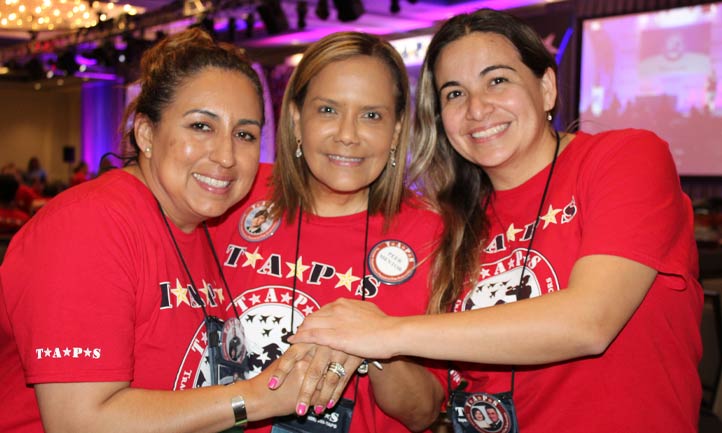
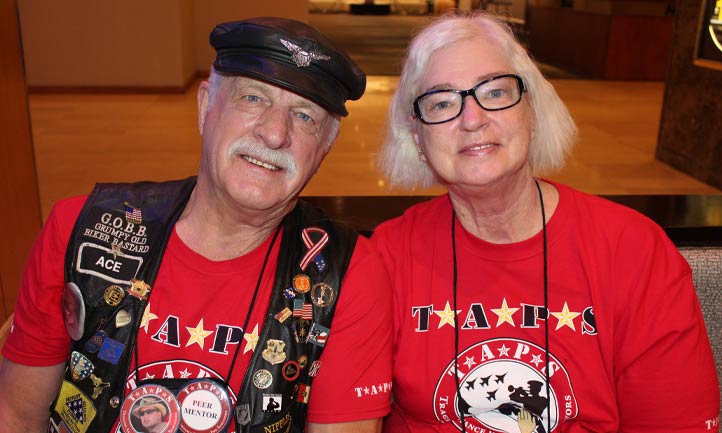
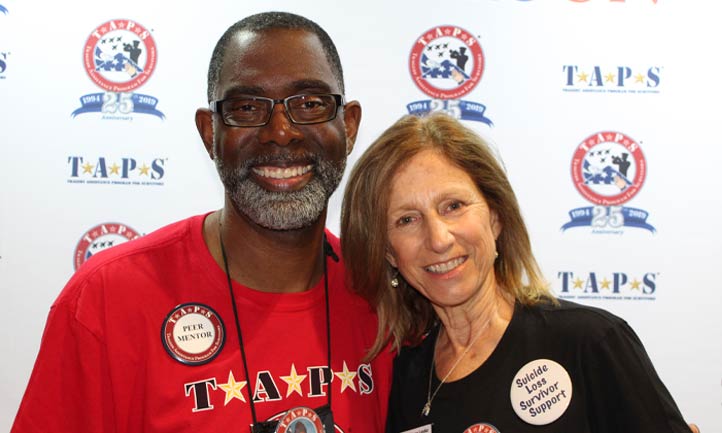
Noah Velazquez is the surviving brother of United States Navy Navy PO3 Joel Daniel Velazquez who died on July 5, 2017.
I first learned of TAPS when our Survivor Care Team reached out to my family offering condolences and support, following the loss of my brother.
I wanted to become a TAPS Peer Mentor because while there are many helpful groups, programs, and meaningful options available for support through TAPS, I feel the best support comes from connecting one on one with other survivors who you can relate to, who experienced a loss similar to yours. After my brother died, I felt like there were not many siblings who felt how I felt. Through TAPS, however, I have learned there are many surviving siblings grieving a military loss, and in some cases many are located in the same city. Living in Northern Florida, I have met other surviving siblings from all over the state — individuals who knew how I felt, had walked a similar grief journey, and just needed someone to talk to… to connect to. I wanted to be that person for others.
I feel like having a mentor is essential along your grief journey because through the support of a trained TAPS Peer Mentor you gain insight into many coping mechanisms that may work better for you, helping you reach a positive and healing place in your grief, thus allowing you to be open to experience positive moments you will always remember. Being a mentor creates opportunities to build lasting relationships… an unspeakable bond with another survivor, someone else who understands.
One of the most valuable lessons I have learned as a mentor is to give your mentee the space they need, but remind them you are available to them when they are ready to connect. Everyone moves through grief at their own pace, and frequent check-in messages can be seen as more bothersome than helpful.
My most rewarding moment as a mentor, so far, came when my mentee was going through a rough patch. I called him and we talked through things in order to help him find some helpful and comfortable outlets for his grief. By the end of our conversation, he was laughing. And the next day, he started doing plays with his community theater, which he loves, and I look forward to seeing one when I visit.
My advice for future TAPS Peer Mentors would be to try your best, and be patient with your mentee… give them time to begin talking. Many mentees can take time to open up, but when they finally do, they will look to you to answer questions or just to talk about what is on their mind. That’s when you truly begin to learn about them.
Being a Mentor to another survivor has been healing for me because it has reminded me that after losing a loved one, we all have voids that can't be filled again, but support and friendship with other survivors can help. As a TAPS Peer Mentor, I have learned many ways to cope with grief and have been able to share that info with other survivors who have excelled using those skills.
Through TAPS programs and resources I have healed in so many ways, but being able to support other survivors as a TAPS Peer Mentor has had the most incredible impact on my grief journey.
« Back
Kristin Cook is the surviving spouse of United States Army CPL Graham Allen Cook who died on February 25, 2014. As a military spouse, she had always known of TAPS. But, she was connected with TAPS resources and support following her husband's passing. After a time, she felt ready to become a Peer Mentor.
In 2017, I made the decision to become a TAPS Peer Mentor because I needed to feel as if I had a purpose. I wanted to do something with my grief. After a time, however, I decided that my grief was still too raw, so I stepped back for a while from mentoring. I started attending TAPS seminars in order to gain the tools and skills that I needed to heal and navigate my own personal grief journey.
Attending TAPS events and meeting other survivors for the first time — just knowing, without words, that we all belong, that we all feel the same, and we’ve all felt the same, and we just want to be normal again — that gave me the strength to resume mentoring and to serve as a source of support for other survivors.
Having a Peer Mentor is so important — it lets us know that we’re not alone. After your loved one dies, no matter what the cause, you feel this void, this utter black hole of being alone. It’s as if no one in the entire world could possibly feel this way or understand. Having someone reach out to just say, “I’m here. I know. I’ve got you.” — it’s invaluable.
If you are considering becoming a Peer Mentor, I recommend digging deep and being honest with yourself: Do you feel ready to support another survivor, or do you still have some more healing work to do for yourself? Talk to peer mentors or reach out to the Peer Mentor Team — oh, the wealth of knowledge I have gained from them! I feel that I initially jumped into mentoring before I was ready. I needed time to learn that I am not defined by how my husband passed away, but for who I am as a woman. Gaining that confidence and strength from my fellow survivors and other peer mentors, in turn gave me the courage to go back to mentoring. Now, being a Peer Mentor is a perfect role for me.
Being a TAPS Peer Mentor has given me an immense sense of purpose and given me somewhere to channel my grief. It makes me feel like something good has come of my husband's death.
« Back
